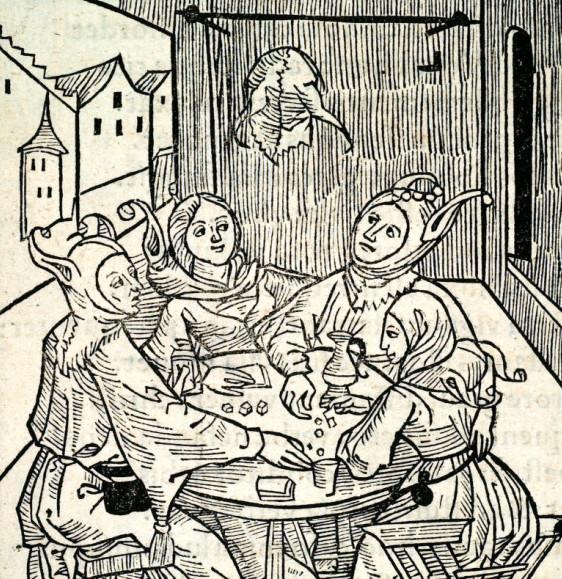Excluding the handful of lottery tickets I've purchased throughout my life, I've only been gambling precisely one time.
I was driving back to Seattle from Bellingham, Washington -- the strange world headquarters of anti-GMO activists and anti-5G ghost hunters -- when I decided to try my luck at Tulalip Casino. Win or lose, I decided that I was going to "invest" only $10 on the slot machines.
Things started off really well. I worked my way up to about $16. Thrilled, I kept playing. And that's when I began losing. Of course, losing made me want to get my winnings back. But I just kept losing. Eventually, I hit $0. I was tempted to try again, but I remembered my rule: $10 only. So I quit and went home.
That experience taught me a few things: (1) Digital slot machines are confusing (because I had no idea what combinations constituted a "win" or a "loss"); (2) Gambling is thrilling when you're winning, and if you're losing, there is a strong impulse to keep playing to get your money back; (3) I understood how gambling could be addictive for some people; and (4) You need to be disciplined if you're going to gamble regularly.
Should gambling be considered a public health threat? In its most recent issue, The Lancet Public Health says yes. But to arrive at that conclusion, the journal uses dubious reasoning to achieve a desired outcome.
Of Dice and Men
In an editorial, the journal argues that, "[g]ambling is not an ordinary activity." Sure it is. All sorts of animals gamble. Chimps gamble. Pigeons gamble. Gambling, which involves taking a risk in order to obtain a big reward, seems to be hardwired into our biology.
One of the lines of evidence upon which the editorial relies is research that shows a link between gambling and suicide attempts in people aged 16 to 24. Specifically, the observational study suggested that men who have a gambling problem have 9 times higher odds of attempting suicide, and women with a gambling problem have 5 times greater odds. The authors controlled for "engagement in social media, video gaming, alcohol use, anxiety, and common personality traits like impulsivity."
But this is woefully inadequate. The population under study included only young people, who are rather notorious for making poor decisions. Further, the study design (known as a cross-sectional study) is one of the weakest designs in epidemiology. If there is an association at all, it may not be because A causes B (i.e., gambling causes suicide). Instead, there may be a hidden third variable -- perhaps thrill-seeking behavior, a mental health condition, or some underlying genetic predisposition -- that drives both a desire for gambling and a tendency toward suicide.
A commentary in the same issue criticizes the concept of "responsible gambling." The authors write:
"...responsible gambling is not fit for purpose, given that it carries with it a message of irresponsibility and shame for those who supposedly cannot control their gambling. The idea that most people can walk away from gambling once they have spent their allotted money is pervasive in the language of so-called responsible gambling. This idea is further conveyed by the use of terminology such as so-called problem gamblers."
According to the authors, then, there is no role for personal responsibility. Gambling is just bad. Any attempt to inject responsibility into the equation is simply shaming those who cannot help themselves. This is utter nonsense.
Let's go back to the editorial. The authors write, rather manipulatively:
"An awareness of this growing public health issue could provide an opportunity to ensure public support to tackle gambling-related harms and protect the most vulnerable."
In other words, they want taxpayer money, and the authors likely formed a commission in order get it. That's a gamble they're almost certain to win.
The Lancet Wants to Be Your Nanny
This isn't the first rodeo for The Lancet when it comes to policing private behavior. An extremely controversial (and poorly supported) study they published claimed that any alcohol consumption is bad for your health. The authors' intention was to change alcohol laws around the world. Now, this family of journals is coming after you internet poker players. Hide your smartphones.




